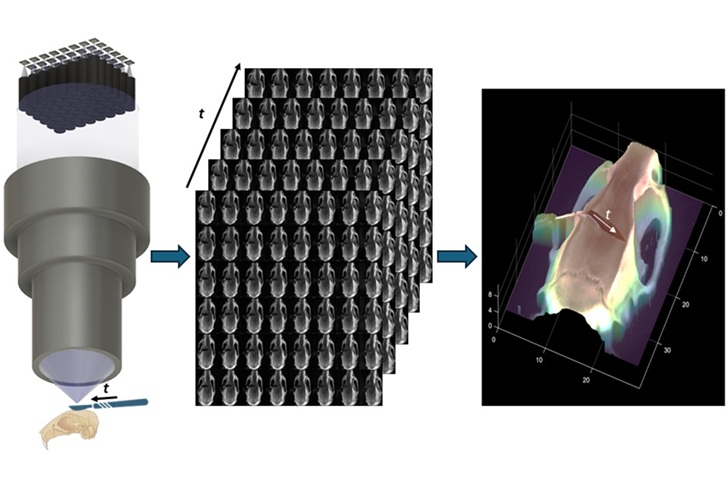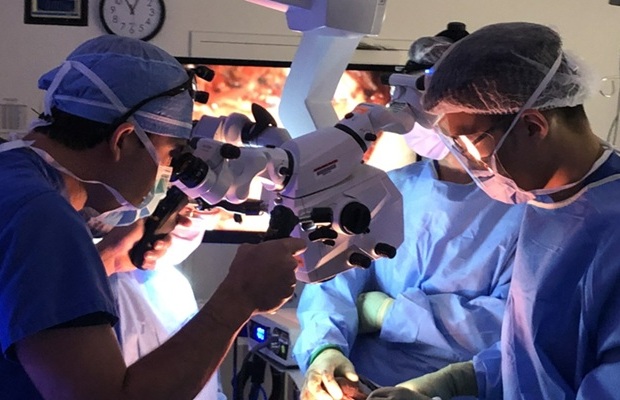Scientists Retraining Coronavirus-Specific T Cells to Target Cancer Cells in Novel Immune-Oncology Approach
|
By HospiMedica International staff writers Posted on 16 Sep 2020 |
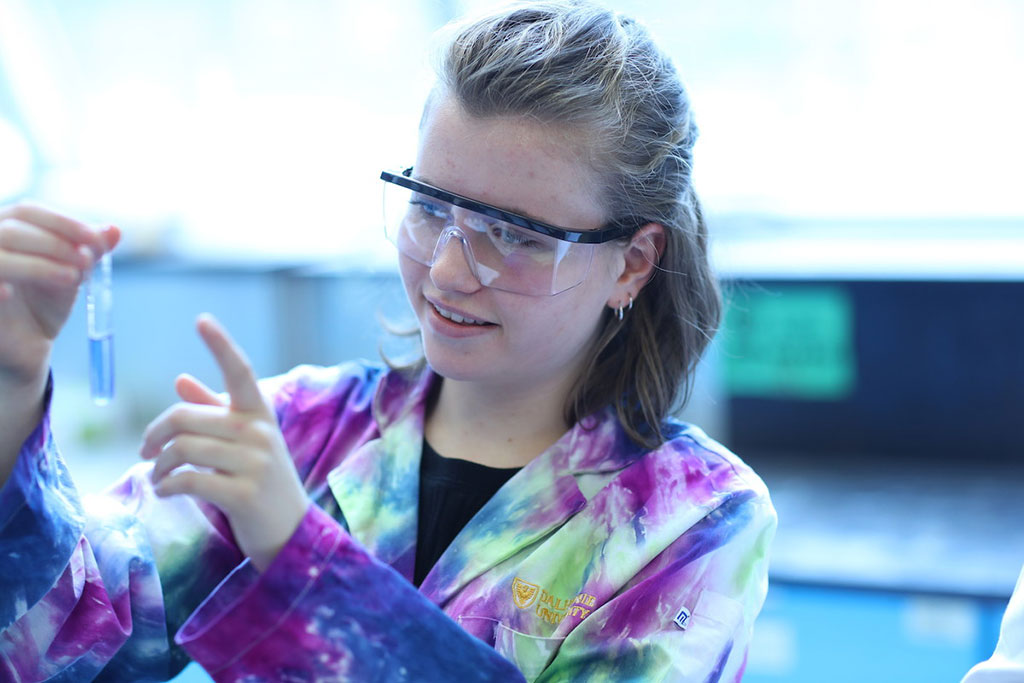
Illustration
An international team of scientists are examining whether the immune response to SARS-CoV-2 could be repurposed as the next generation of cancer immunotherapy.
The immune system helps protect against viruses, bacteria and anything harmful, but does not protect against cancer because it fails to recognize cancer as a threat. Dr. Shashi Gujar, a scientist with the Department of Pathology at Dalhousie University (Halifax, Nova Scotia, Canada), along with partners in France, Demark, Germany, the US and India, believes that this is where viruses like COVID-19-causing coronavirus can play a key role.
When a person becomes infected with SARS-CoV-2 coronavirus, their immune system recognizes the virus and activates a particular type of immune cells called “T cells.” These T cells act in a highly precise manner and kill only virus-harbouring cells. Multiple vaccines being tested internationally have shown a similar capacity to activate these coronavirus-specific T-cells. These T cells can establish a memory response that maintains active protection against possible re-infection with the virus, which means that coronavirus-specific T cells can hunt for the virus inside the body, eliminate the areas where the virus replicates, and aid in the recovery from COVID-19.
Dr. Gujar and his team are trying to get these same T cells to go after tumors by getting the cancer cells to express the same identifying tags as the coronavirus-infected cells, and become the targets of the anti-coronavirus T cells. Dr. Gujar and his international collaborators are currently in the process of testing the coronavirus-specific tags (called as epitopes in scientific terms) that exist in different human populations. From there, they will prepare a cocktail of these tags that can be used in human clinics to cure cancers. According to Dr. Gujar, what makes this research truly unique is that due to infection or vaccination, the coronavirus-specific cells have the potential to be found in millions of individuals worldwide- making the use of this cancer immunotherapy useful for masses globally.
“We’ve figured out how to trick your coronavirus-specific T cells to think that your cancer is infected by the virus,” said Dr. Gujar. “The key is to do this without using the virus or actually causing the real infection.”
“Once we know it works, this immunotherapy will actually be a straightforward process, and may be something we’ll be able to start using on patients sooner rather than later. This is a highly novel and practical strategy to harness virus-specific T cells against various types of cancers. That’s what makes it so exciting,” added Dr. Gujar.
Related Links:
Dalhousie University
The immune system helps protect against viruses, bacteria and anything harmful, but does not protect against cancer because it fails to recognize cancer as a threat. Dr. Shashi Gujar, a scientist with the Department of Pathology at Dalhousie University (Halifax, Nova Scotia, Canada), along with partners in France, Demark, Germany, the US and India, believes that this is where viruses like COVID-19-causing coronavirus can play a key role.
When a person becomes infected with SARS-CoV-2 coronavirus, their immune system recognizes the virus and activates a particular type of immune cells called “T cells.” These T cells act in a highly precise manner and kill only virus-harbouring cells. Multiple vaccines being tested internationally have shown a similar capacity to activate these coronavirus-specific T-cells. These T cells can establish a memory response that maintains active protection against possible re-infection with the virus, which means that coronavirus-specific T cells can hunt for the virus inside the body, eliminate the areas where the virus replicates, and aid in the recovery from COVID-19.
Dr. Gujar and his team are trying to get these same T cells to go after tumors by getting the cancer cells to express the same identifying tags as the coronavirus-infected cells, and become the targets of the anti-coronavirus T cells. Dr. Gujar and his international collaborators are currently in the process of testing the coronavirus-specific tags (called as epitopes in scientific terms) that exist in different human populations. From there, they will prepare a cocktail of these tags that can be used in human clinics to cure cancers. According to Dr. Gujar, what makes this research truly unique is that due to infection or vaccination, the coronavirus-specific cells have the potential to be found in millions of individuals worldwide- making the use of this cancer immunotherapy useful for masses globally.
“We’ve figured out how to trick your coronavirus-specific T cells to think that your cancer is infected by the virus,” said Dr. Gujar. “The key is to do this without using the virus or actually causing the real infection.”
“Once we know it works, this immunotherapy will actually be a straightforward process, and may be something we’ll be able to start using on patients sooner rather than later. This is a highly novel and practical strategy to harness virus-specific T cells against various types of cancers. That’s what makes it so exciting,” added Dr. Gujar.
Related Links:
Dalhousie University
Latest COVID-19 News
- Low-Cost System Detects SARS-CoV-2 Virus in Hospital Air Using High-Tech Bubbles
- World's First Inhalable COVID-19 Vaccine Approved in China
- COVID-19 Vaccine Patch Fights SARS-CoV-2 Variants Better than Needles
- Blood Viscosity Testing Can Predict Risk of Death in Hospitalized COVID-19 Patients
- ‘Covid Computer’ Uses AI to Detect COVID-19 from Chest CT Scans
- MRI Lung-Imaging Technique Shows Cause of Long-COVID Symptoms
- Chest CT Scans of COVID-19 Patients Could Help Distinguish Between SARS-CoV-2 Variants
- Specialized MRI Detects Lung Abnormalities in Non-Hospitalized Long COVID Patients
- AI Algorithm Identifies Hospitalized Patients at Highest Risk of Dying From COVID-19
- Sweat Sensor Detects Key Biomarkers That Provide Early Warning of COVID-19 and Flu
- Study Assesses Impact of COVID-19 on Ventilation/Perfusion Scintigraphy
- CT Imaging Study Finds Vaccination Reduces Risk of COVID-19 Associated Pulmonary Embolism
- Third Day in Hospital a ‘Tipping Point’ in Severity of COVID-19 Pneumonia
- Longer Interval Between COVID-19 Vaccines Generates Up to Nine Times as Many Antibodies
- AI Model for Monitoring COVID-19 Predicts Mortality Within First 30 Days of Admission
- AI Predicts COVID Prognosis at Near-Expert Level Based Off CT Scans
Channels
Critical Care
view channel
Discovery of Heart’s Hidden Geometry to Revolutionize ECG Interpretation
Electrocardiograms (ECGs) are one of the most widely used tools in diagnosing heart conditions, but their accuracy can be affected by natural variations in individual heart anatomy. Traditional ECG interpretation... Read more
New Approach Improves Diagnostic Accuracy for Esophageal Motility Disorders
Esophageal motility disorders are conditions in which the muscles of the esophagus fail to function properly, often resulting in difficulty swallowing. Diagnosing these disorders can be challenging, as... Read more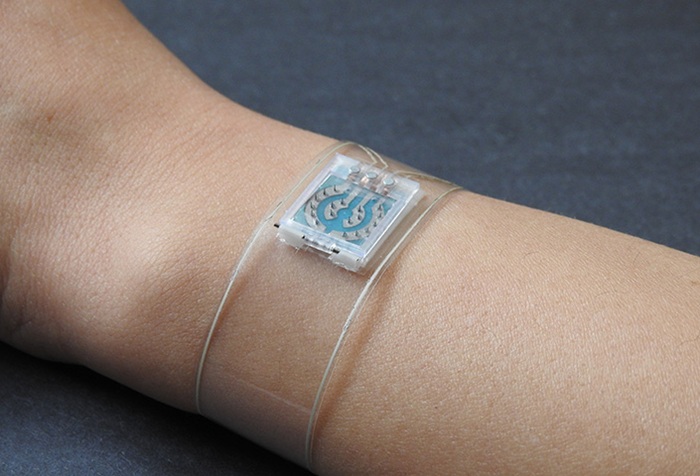
Wristband Sensor Provides All-In-One Monitoring for Diabetes and Cardiovascular Care
Diabetes management is a complex and evolving challenge, particularly when it comes to accurately tracking and understanding how various factors affect blood sugar levels and overall health.... Read more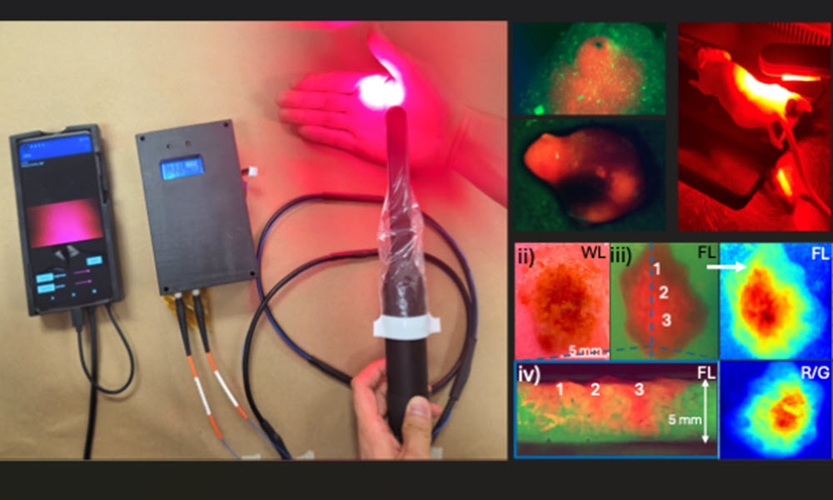
Handheld Device Enables Imaging and Treatment of Oral Cancer in Low-Resource Settings
Oral cancer is a growing public health concern, particularly in South Asia, where it affects tens of thousands of people each year. In India, oral cancer accounts for 40% of all cancers, largely driven... Read moreSurgical Techniques
view channel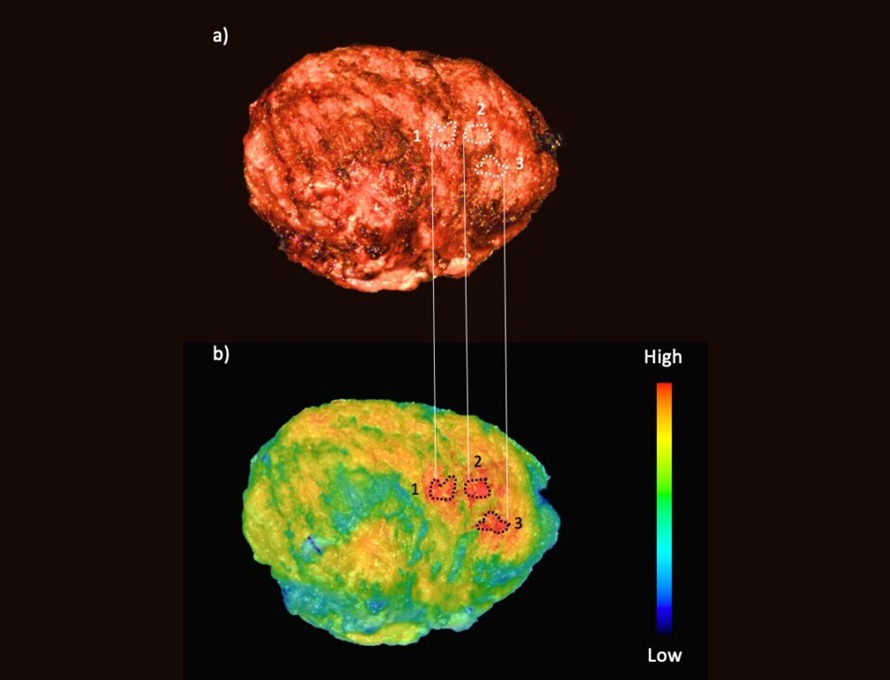
Fluorescent Imaging Agent ‘Lights Up’ Nerves for Better Visualization During Surgery
Surgical nerve injury is a significant concern in head and neck surgeries, where nerves are at risk of being inadvertently damaged during procedures. Such injuries can lead to complications that may impact... Read more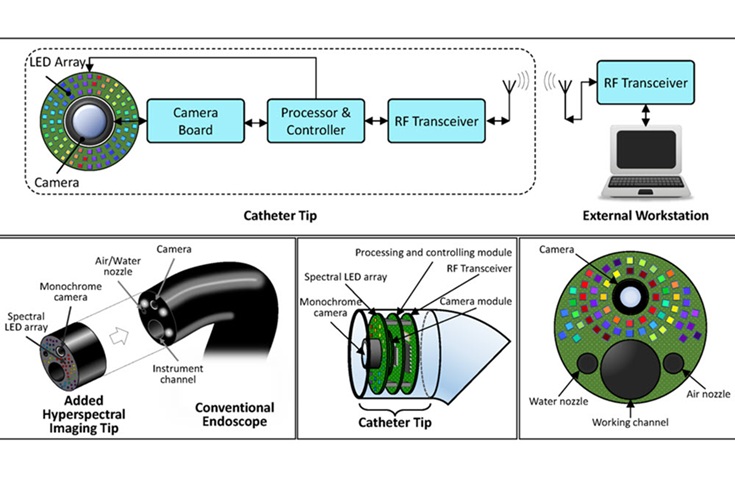
LED-Based Imaging System Could Transform Cancer Detection in Endoscopy
Gastrointestinal cancers remain one of the most common and challenging forms of cancer to diagnose accurately. Despite the widespread use of endoscopy for screening and diagnosis, the procedure still misses... Read morePatient Care
view channel
Revolutionary Automatic IV-Line Flushing Device to Enhance Infusion Care
More than 80% of in-hospital patients receive intravenous (IV) therapy. Every dose of IV medicine delivered in a small volume (<250 mL) infusion bag should be followed by subsequent flushing to ensure... Read more
VR Training Tool Combats Contamination of Portable Medical Equipment
Healthcare-associated infections (HAIs) impact one in every 31 patients, cause nearly 100,000 deaths each year, and cost USD 28.4 billion in direct medical expenses. Notably, up to 75% of these infections... Read more
Portable Biosensor Platform to Reduce Hospital-Acquired Infections
Approximately 4 million patients in the European Union acquire healthcare-associated infections (HAIs) or nosocomial infections each year, with around 37,000 deaths directly resulting from these infections,... Read moreFirst-Of-Its-Kind Portable Germicidal Light Technology Disinfects High-Touch Clinical Surfaces in Seconds
Reducing healthcare-acquired infections (HAIs) remains a pressing issue within global healthcare systems. In the United States alone, 1.7 million patients contract HAIs annually, leading to approximately... Read moreHealth IT
view channel
Printable Molecule-Selective Nanoparticles Enable Mass Production of Wearable Biosensors
The future of medicine is likely to focus on the personalization of healthcare—understanding exactly what an individual requires and delivering the appropriate combination of nutrients, metabolites, and... Read more
Smartwatches Could Detect Congestive Heart Failure
Diagnosing congestive heart failure (CHF) typically requires expensive and time-consuming imaging techniques like echocardiography, also known as cardiac ultrasound. Previously, detecting CHF by analyzing... Read moreBusiness
view channel
Bayer and Broad Institute Extend Research Collaboration to Develop New Cardiovascular Therapies
A research collaboration will focus on the joint discovery of novel therapeutic approaches based on findings in human genomics research related to cardiovascular diseases. Bayer (Berlin, Germany) and... Read more













